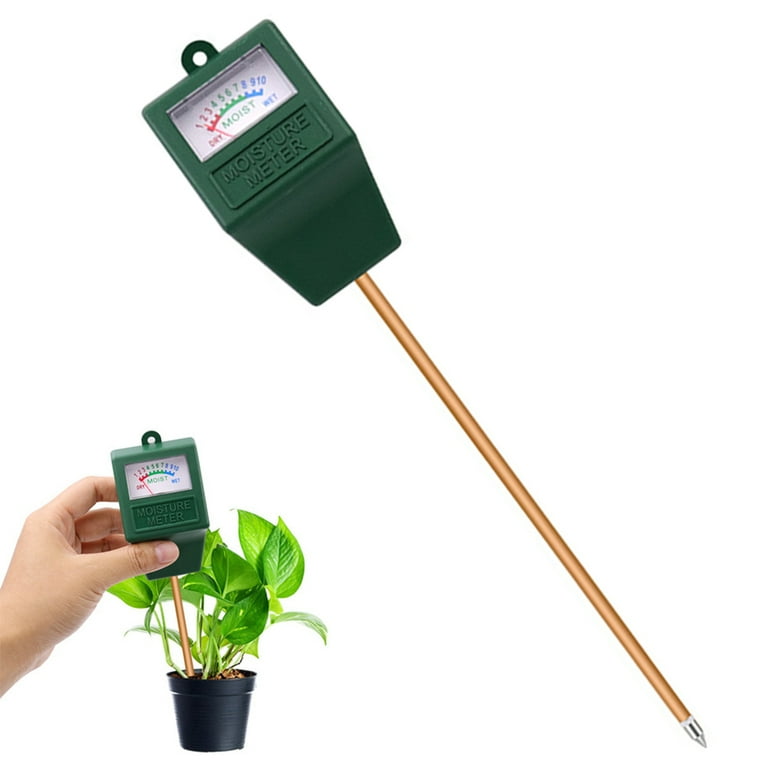Comprehending the Different Types of Moisture Meters and Their Applications
Comprehending the Different Types of Moisture Meters and Their Applications
Blog Article
The Ultimate Guide to Moisture Meters: A Comprehensive Introduction and Exactly How They Can Save You Cash
In the world of building maintenance, construction, and various industries, the significance of precisely measuring moisture degrees can not be overemphasized. Wetness meters act as vital tools in discovering and keeping an eye on moisture material in materials, assisting in avoiding costly problems and making certain the quality of products. Understanding the subtleties of different kinds of dampness meters, their applications, and the prospective cost-saving advantages they provide can be a game-changer for specialists and companies alike. Uncovering how these gadgets can not only simplify procedures but additionally add to economic savings is a trip worth embarking on.
Kinds of Moisture Meters
Numerous types of dampness meters are offered for various applications in different sectors. One usual kind is the pin-type wetness meter, which measures the electrical resistance between 2 pins put into a material. This type appropriates for timber, drywall, and other structure materials. Pinless wetness meters, on the other hand, use electro-magnetic sensing unit plates to scan a bigger location without causing damages to the product's surface area. These meters are suitable for quickly examining moisture levels in big areas such as walls and floors.
Moreover, there are also specialty wetness meters made for particular products like hay, grain, or dirt. These meters offer accurate moisture readings tailored to the special homes of the product being tested. Infrared wetness meters gauge the thermal properties of a material to determine its moisture material non-invasively, making them valuable for applications where pin or pinless meters might not be ideal. Understanding the various kinds of dampness meters offered can help markets choose the most suitable device for their particular wetness measurement needs.

Advantages of Utilizing Moisture Meters

Moreover, making use of wetness meters can bring about enhanced energy performance. By recognizing areas with high moisture levels, such as leaks or bad insulation, modifications can be made to improve power conservation and decrease energy prices. In farming setups, moisture meters play an important duty in enhancing plant returns by making it possible for farmers to check soil moisture levels and make notified watering decisions. Generally, the advantages of making use of dampness meters extend across various industries, offering affordable services and promoting better high quality control methods.
How to Pick the Right Moisture Meter
Picking the proper wetness meter involves taking into consideration essential elements such as material compatibility, dimension variety, and calibration accuracy. When picking a dampness meter, it's necessary to ensure that the meter appropriates for the certain material you will certainly be testing. Different products have differing electrical residential properties that can affect dampness readings, so selecting a meter made for your product is important for accurate outcomes. Additionally, take into consideration the measurement variety of the wetness meter. Ensure that the meter can identify wetness degrees within the range needed for your applications. Calibration precision is one more vital factor to remember (Moisture Meter). Opt for a wetness meter with reputable calibration to make certain consistent and precise readings. Some meters might call for periodic calibration changes, so recognizing the calibration procedure is essential. By thoroughly examining these aspects, you can select a moisture meter that fulfills your needs and offers exact moisture measurements for your jobs.
Proper Strategies for Moisture Meter Usage
To make sure exact wetness readings and take full advantage of the efficiency of a moisture meter, using appropriate strategies is crucial. When utilizing a pin-type wetness meter, put the pins or probes into the material being evaluated up until they make complete call. Make certain the pins are perpendicular to have a peek at these guys the surface to get one of the most accurate reading. For pinless dampness meters, hold the gadget level versus the product and move it slowly to cover the entire area for an ordinary reading. It's essential to calibrate the wetness meter according to the material being evaluated to improve precision. Take numerous readings across the surface and average them out for a more dependable outcome. Additionally, ensure that the material being tested is adjusted to the environment to avoid skewed readings. see Regular maintenance of the dampness meter, such as cleansing the pins or sensing unit, is likewise important to make sure regular and precise analyses. By adhering to these appropriate methods, individuals can depend on their moisture meter to give reliable wetness levels, aiding in stopping pricey damage or guaranteeing top quality in numerous applications.

Cost Savings Through Moisture Meter Applications
Exactly how can the critical utilization of wetness meters lead to considerable expense savings throughout numerous sectors? In the agriculture industry, wetness meters help in identifying the optimum time for harvesting crops, avoiding excess or over-drying dampness that can influence the last product's high quality.

In addition, in the food handling industry, moisture meters are vital for keeping an eye on item top quality and making certain conformity with safety and security regulations. By accurately measuring wetness material in food products, makers can stop wasting, preserve freshness, and decrease waste, leading to substantial price savings. Generally, the tactical application of moisture meters is a valuable investment that can cause substantial cost reductions and boosted performance throughout different industries.
Conclusion
In conclusion, dampness meters are beneficial devices for finding and determining moisture degrees in numerous products. By using the right dampness meter and complying with appropriate methods, customers can successfully protect against expensive damages created by excess wetness. Investing in a top quality wetness meter can bring about substantial expense financial savings in the lengthy run by identifying possible problems early on and making it possible for punctual remediation. Inevitably, moisture meters are crucial instruments for maintaining the stability and longevity of products and structures.
Dampness meters offer as important devices in spotting and checking moisture content in materials, assisting in preventing costly damages and making certain the quality of products. Infrared wetness meters gauge the thermal residential properties of a product to determine its moisture material non-invasively, making them beneficial for applications where pin or pinless meters might not be ideal.Dampness meters provide vital benefits in properly keeping an eye on and examining dampness degrees in varied products and settings. In farming setups, dampness meters play a critical duty in maximizing plant returns by making it possible for farmers to keep track of soil wetness levels and make informed my link irrigation decisions.In verdict, dampness meters are beneficial devices for measuring and spotting wetness levels in different materials.
Report this page